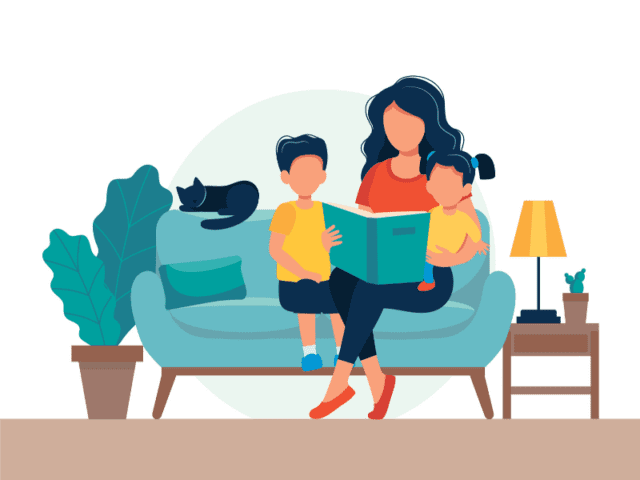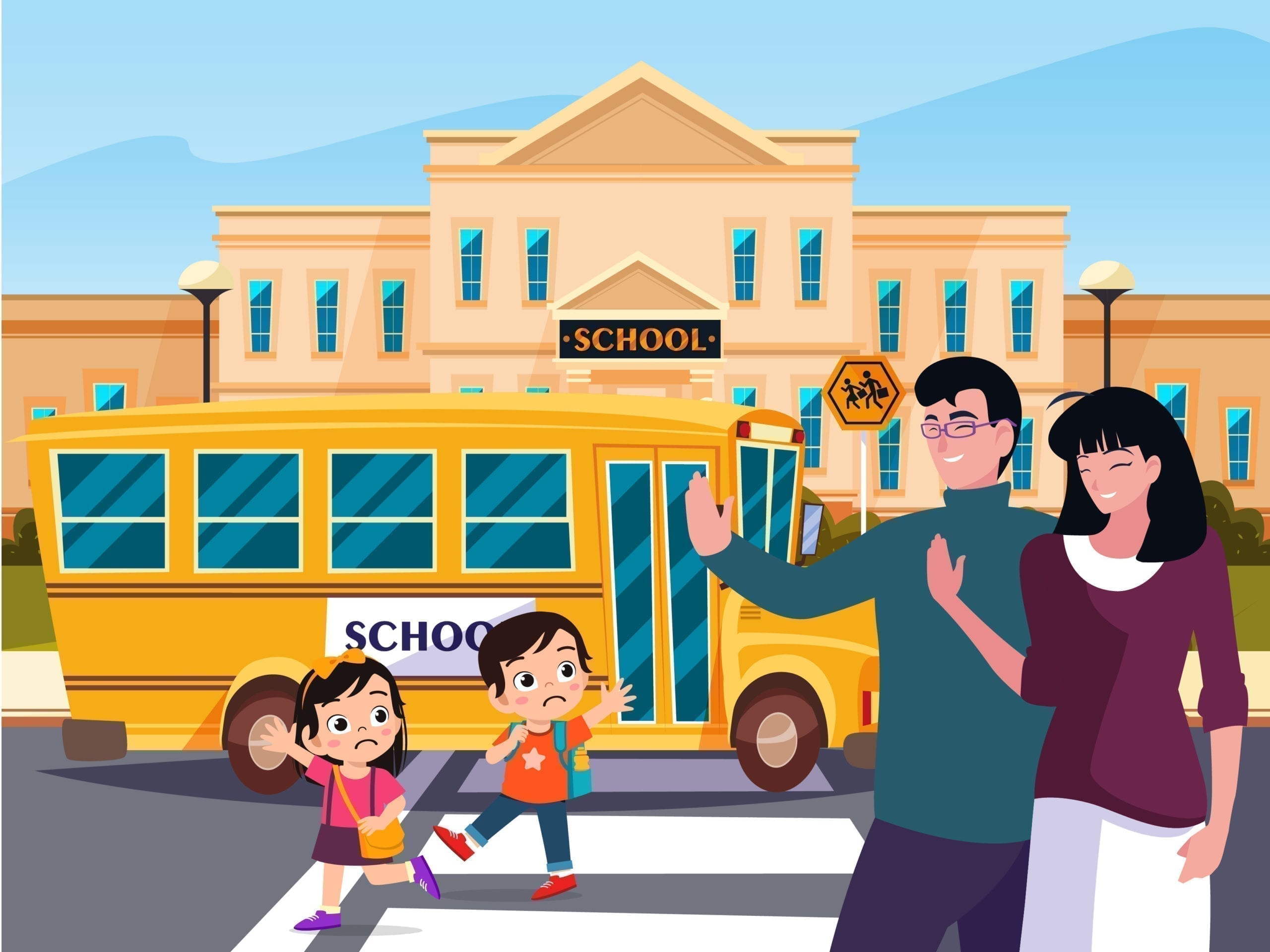Separation anxiety is just what it sounds like; the fear of being away from the people you are emotionally attached to. It is often demonstrated as early as in infancy, toddlerhood, preschoolers and in some cases even during adolescence and adulthood. It’s normal for an infant or toddler to feel anxious upon separation from a caregiver, surrounding or even an object, for instance a blanket, or a stuffed toy.
It is fairly common for children to demonstrate anxiety at separation in a new surrounding for about 3 to 4 weeks. Even as mothers, it’s absolutely normal to be anxious about separating from your child for a brief period. For instance, an overnight business trip, or a weekend getaway with girl friends. It can get exquisitely unsettling for mothers when a child sobs and clings on and you leave the child teary-eyed. This tends to awaken the feeling of mom guilt and the child’s anxiety feeds into the parent’s anxiety.
So before helping your child with this, it is better to help yourself. First things first, you have to accept that separation anxiety is the other side of the attachment coin. It is natural and it displays a sign of healthy attachment. The goal should not be to completely get rid of the anxiety, the idea is to feel comfortably worried and anxious while separating and not be fearful of being away.
Here Is How To Handle Anxiety As A Mother:
- Everyone has a different way of handling a child, and kids are the most adaptive.
- Changing your child’s routine for once or twice will not make a much big difference.
- Separation is emotionally healthy for your child and yourself.
- And last but not the least, let yourself enjoy the little baby-free (me time) that you get.
Once you have figured out and mastered control over anxiety as a mother, let’s understand a little more about separation anxiety in babies. And take a look into what kind of separation anxiety symptoms are seen.
To start with, reaction to separation anxiety and intensity can differ for every child depending upon the age, nature of the child, their ability to understand the reason for separation and current situation. For instance, if the child is hungry or sleepy, the reaction is intensified.
Separation anxiety in babies during infancy (6 to 9 months), is mainly for comfort or hunger or the sight or smell of parents. At this age, the child starts understanding that the parents/caregiver will leave them and go elsewhere.
Separation Anxiety Symptoms In Infants That You Must Look Out For:
- Crying when the parent/caregiver is leaving.
- Shows signs of discomfort while sleeping and mealtime.
- Not as playful as always.
- Looking for a parent/caregiver.
While in the case of toddlers or preschoolers, parents have more stressful periods. This happens as the kids are more aware of where and why you are leaving. Most importantly, they can read the signs of your own reluctance to leave them behind.
5 Significant Separation Anxiety Symptoms That A Toddler Demonstrates
- Clinginess, refusing to separate from a parent/caregiver.
- Crying or hauling in extreme situations.
- Temper tantrum.
- Trying to hold on to the parent and stopping them from leaving.
- In extreme cases rolling on the floor and throwing away things.
It is also observed that separation anxiety in children in adolescence is often ignored or goes unaddressed. It is harder to spot but this doesn’t mean it is any less impactful or is unreal. In this case, parents need to do a little more digging to find the cause and notice the symptoms.
What Are The Separation Anxiety Symptoms In Teens?
- Sleeping with a parent or while the parent is around.
- Refusal to go to school and to do other activities.
- Insistence on knowing where the parents are all the time.
- Lack of sleep.
9 Important Tips To Help Your Kid Handle Separation Anxiety
Whether the child is 5 or 15, separation anxiety is a real problem and it needs to be addressed and dealt with a lot of love and support. How to deal with separation anxiety may vary depending upon the age of the child. In case of a toddler and preschooler, here are a few things that you must follow:
1. Be Consistent

follow a similar drop off ritual. For instance, sing songs on your way, play games, tell stories.
2. Create Goodbye Rituals
Always blow kisses and hug. But most importantly, keep goodbyes really short. Longer goodbyes tend to trigger anxiety.
3. Keep Your Promise
If you promise them a cookie after school, or their favourite toy or getting their sibling along, keep the promise. This will give them a reason to hold on and make the wait smoother.
4. Walk The Talk
Never underestimate the capability of a toddler to understand when you talk to them like adults. Reason the separation, tell them for how long you will be away, ask for their co-operation and then you will see it all falling into place.
5. Prepare Them In Advance
Practise being away, let them be involved in independent play (during infancy). Send them on play dates, or at grandma’s place. This helps them get the hang of the drill.
The task of dealing with how to deal with separation anxiety of teens can be tricky. You really have to be cautious. First and foremost, you need to dig into the reason behind the anxiety.
6. Love Is The Key
Make sure to tell them how loved they are, and no matter what, you will be there by their side.
7. Relaxation Therapy
Spend some quality time with your child while helping him/her relax. Deep breaths, mediation and some quiet time together also helps.
8. Avoid Over-Scheduling
Just let loose and follow the flow. Focus more on playtime, family time or downtime before going to sleep.
9. Empathise
Always appreciate the progress made and motivate them to take baby steps in the right direction.
Separation anxiety is normal, take it as a phase of emotional development of a child into a grown-up. This can only get easier with a lot of patience, warmth and love. Kids take a while to learn how to handle anxiety and enjoy their independence. This phase may be longer for few and shorter for many, but gradually every individual learns to fight the discomfort and anxiety. Having said that, it’s always a good idea to seek professional help, if you feel this is not your cup of tea and the sand seems to be slipping off your hands. However, always try to take this feeling as a sign of togetherness, a bond between you and your child that makes them feel safe in your presence. And this will help you to figure out how to handle separation anxiety.


